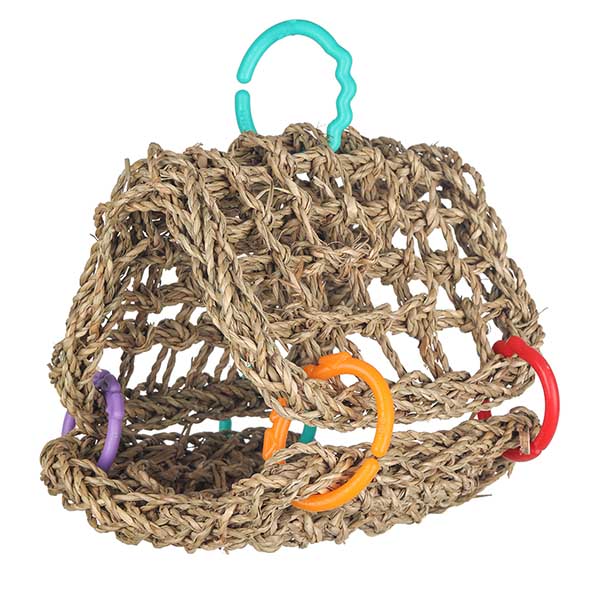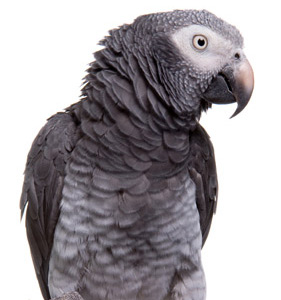Hello, I'm new here and have read through some great stuff here, forgive me if my question is redundant: How can I help my possibly hormonal bird adapt to hidey hut withdrawal?
I recently adopted a 4 year old male green cheeked conure (bloodwork confirmed) His cage came cluttered with 2 hidey huts of different sizes. His previous owner was insistent that he needs/loves them, even gave me duplicates for when he chews through them. Yeah, no thanks! His cage also had very little variety in perches, mainly wide dowels and a couple of sand coated perches. He seemed to spend most of his time climbing the walls of his cage. Day one I added two grape vine perches, and it took him two days to sit on them. Any new thing he is very shy and cautious of.
First night at my house I removed one of the huts. I didn't want to stress him out with too much change too quickly (I had also swapped the sand perches out for grape vine). He was molting, lots of pin feathers on his neck and face. Also he dropped one tail feather and five or so large chest feathers within the first 3 days. He is preening and bathing in his water dish a lot, so I think it's really molting and not plucking.
He has been with us a week now, and yesterday he started to mate with my hand a bit, and definitely gets territorial around certain areas of his cage. He can also get kinda bitey at times. I am concerned that his hormones are at play, considering that he's had these huts for the first 4 years of his life. I really want to ditch the hut, but dont want to traumatize him, especially since he is still settling in with us. Any tips for how to help him through the transition? Do I wait for him to settle in before ditching his last hut? Every day that goes by I hate looking at that thing, especially since I know how dangerous they can be. Thanks for reading.
I recently adopted a 4 year old male green cheeked conure (bloodwork confirmed) His cage came cluttered with 2 hidey huts of different sizes. His previous owner was insistent that he needs/loves them, even gave me duplicates for when he chews through them. Yeah, no thanks! His cage also had very little variety in perches, mainly wide dowels and a couple of sand coated perches. He seemed to spend most of his time climbing the walls of his cage. Day one I added two grape vine perches, and it took him two days to sit on them. Any new thing he is very shy and cautious of.
First night at my house I removed one of the huts. I didn't want to stress him out with too much change too quickly (I had also swapped the sand perches out for grape vine). He was molting, lots of pin feathers on his neck and face. Also he dropped one tail feather and five or so large chest feathers within the first 3 days. He is preening and bathing in his water dish a lot, so I think it's really molting and not plucking.
He has been with us a week now, and yesterday he started to mate with my hand a bit, and definitely gets territorial around certain areas of his cage. He can also get kinda bitey at times. I am concerned that his hormones are at play, considering that he's had these huts for the first 4 years of his life. I really want to ditch the hut, but dont want to traumatize him, especially since he is still settling in with us. Any tips for how to help him through the transition? Do I wait for him to settle in before ditching his last hut? Every day that goes by I hate looking at that thing, especially since I know how dangerous they can be. Thanks for reading.


